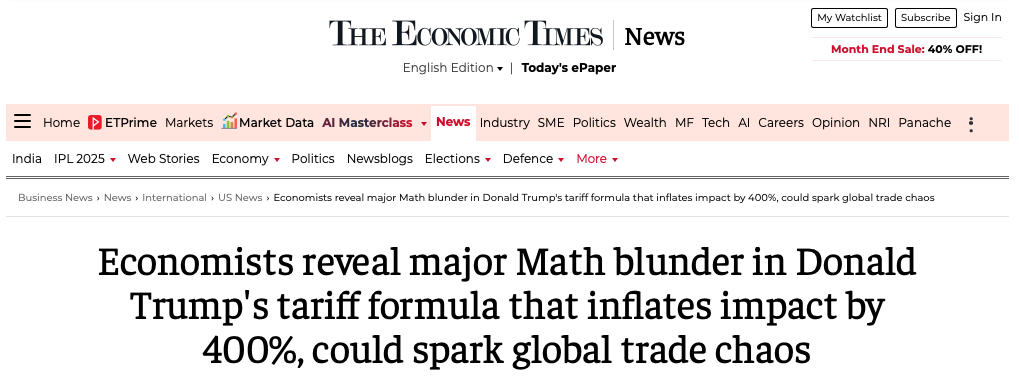MILLION, BILLION -- WHAT'S THE BIG DEAL?
THE AMERICAN MIND — 1980s — Lamenting American dumbness is the new national pastime. A recent report on schools warns of “A Nation at Risk.” “Rocky IV” is a box-office hit. And a surprise bestseller details The Closing of the American Mind. But math?
Think you understand numbers? Consider this. If a million seconds unfold in 11.5 days, how long does a billion seconds last?
This won’t be on any test because, when it comes to math, we give ourselves a pass.
— “I was just never good with numbers.”
— “Me neither. Never got it.”
Besides, Geekface, so what if we don’t know that a billion seconds lasts. . . 32 years? Leave math to the nerds. We’ll be fine.
Then in the fall of 1988, a slim book hit the shelves. Innumeracy: Mathematical Illiteracy and its Consequences. Suddenly, our fear and loathing of numbers added up to a failing grade -- not just in math but in creating a functional society.
John Allen Paulos had touched a nerve. Featured in People and on NPR, guesting on Letterman and Larry King, Paulos was polite and amusing. But he remained “distressed by a society which depends so completely on mathematics and science and yet seems so indifferent to the innumeracy and scientific literacy of so many of its citizens.”
Tall and wiry, with Einsteinian hair, Paulos seemed to have stepped out of “Revenge of the Nerds.” He embraced the stereotype, having grown up with it. Raised in Milwaukee, interested in everything, Paulos was drawn to numbers, especially the baseball kind. And like many a brainy kid, he soon discovered “that with math and logic, a few facts, and a bit of psychology you can vanquish blowhards no matter your age or size.”
In college, after considering English, physics, or philosophy, Paulos turned to math, eventually earning a Ph.D. Yet he retained his wide interests — some might call him a polymath — seeking the interface between math and the world it describes so precisely.
Paulos has taught math to nursing students, journalists, and in the Peace Corps in Kenya. He eventually settled into a professorship at Temple University in Philadelphia where students knew him as a quirky professor who kept you thinking.
“This just in,” the professor announces. “The annual cost of housing in America next year will top three billion dollars!” Students react as Paulos expects.
OMG! Greedy landlords! No wonder there are so many homeless! Affordable housing — NOW! And none of the innumerate get the joke — that $3 billion adds up to fifteen bucks a person.
Professor Paulos was also known to digress, spewing babble for a minute or more because he hated “students’ mindless nodding at whatever it is Herr (or in my case Hair) Professor says, no matter how nonsensical.”
So when he hit the talk show circuit, Paulos rejected the simplistic label of math “crusader.”
“Mathematics doesn’t need any human crusaders.” It is “a beautiful subject” and those who shun math do so at their peril. Because the consequences of the term Paulos coined — “innumeracy” — are not pretty. Among them:
— “Innumerate people characteristically have a strong tendency to personalize — to be misled by their own experiences, or by the media’s focus on individuals and drama.”
— “The same numerical obtuseness afflicts many who think that a disproportionate share of American wealth goes to foreign aid, or that government earmarks for relatively paltry $50 million projects are the cause of the deficit.”
— And the innumerate, Paulos warned, are easy prey for claims that, if you actually do the math, add up to absurdity.. (Take your pick.)
When Paulos published Innumeracy, critics nodded. “Our society would be unimaginably different if the average person truly understood the ideas in this marvelous and important book.”
A few years later, Paulos’ A Mathematician Reads the Newspaper had fun pointing fingers at an innumerate media. But today, innumeracy from sea to shining sea puts democracy itself at risk. Because as Paulos warned us, “those who can make you believe absurdities can make you commit atrocities.”
What you don’t know about math probably won’t kill you. But what a society doesn’t know about math and science can kill many. (Which leads to another quiz question. How many Americans, unvaxxed even after vaccines were widely available, died of COVID? The answer is too tragic and infuriating for “kinder, cooler.” See below.)
Approaching 80, though content to be “rather simply, a mathematician who writes,” John Allen Paulos remains “disturbed.” Why are people still “okay” about innumeracy, he wonders? No adult would shrug off a lifelong struggle with reading, saying “I just don’t get words.” And no society should take mathematical ignorance lightly. Knowing the vast difference between a million and a billion matters. Numbers matter. Math matters. This will be on the — oh wait. We failed that test. Can we study a little and retake it?
(ANSWER: 300,000 — 300,000 unvaccinated dead).










